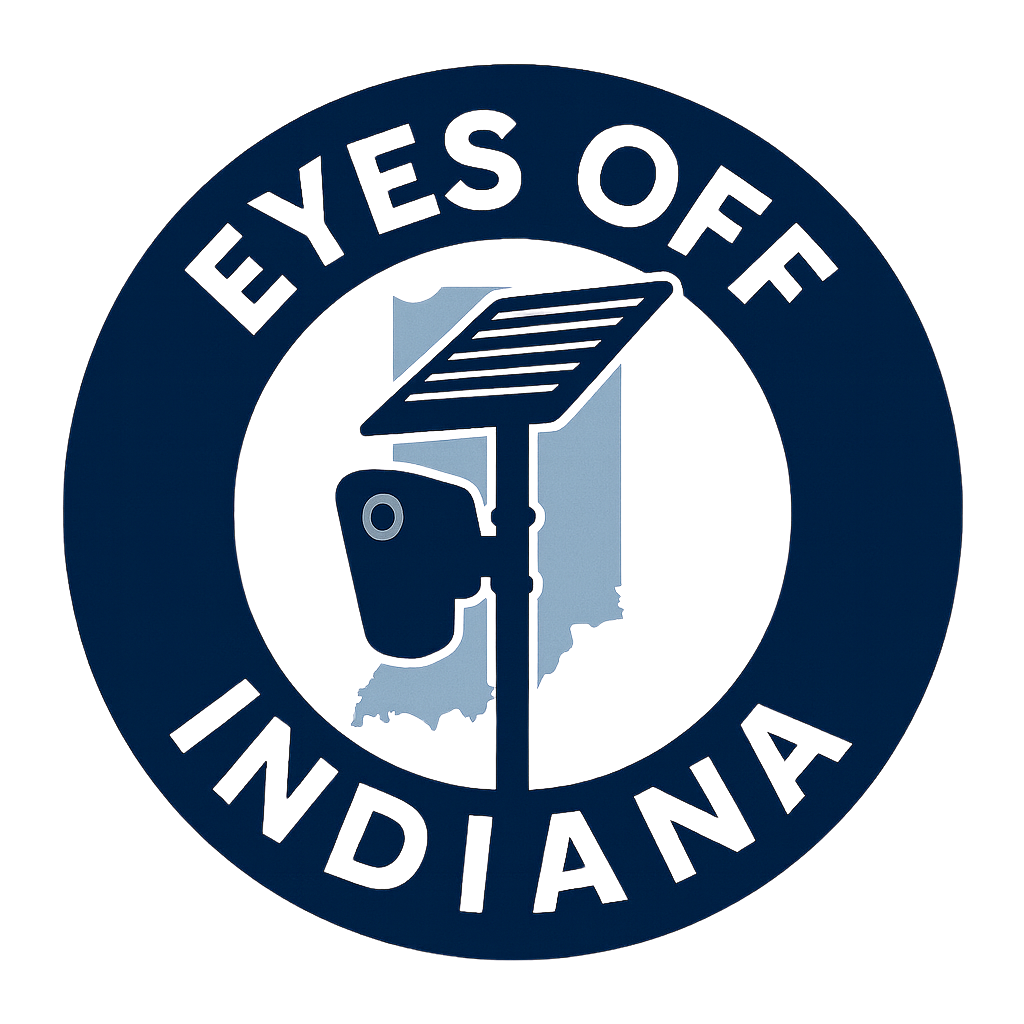Indiana Is an Outlier in ALPR Privacy
Across the United States, states have taken legislative steps to govern how law enforcement may collect, store, share, and access automatic license plate reader (ALPR) data. These safeguards include retention limits, public transparency requirements, audit mandates, warrant standards, and restrictions on unauthorized access or commercial distribution.
Indiana has none of these protections. There is no statewide policy governing how long ALPR data can be stored, how it can be used, who can access it, or whether it can be shared with outside agencies or vendors. Each local agency sets its own rules or may operate without formal policy. As a result, Hoosiers can be tracked indefinitely with no guaranteed transparency, accountability, or deletion timeline.
How Other States Protect Drivers
According to the National Conference of State Legislatures, at least 16 states have enacted ALPR-related privacy and data retention laws. Examples include:
- Maine (2009): Maximum retention 21 days
- New Hampshire (2007): Purge data within 3 minutes without criminal relevance
- Arkansas (2013): Maximum retention 150 days
- California (2011 and 2015): Retention limits and restrictions on commercial disclosure
- Montana (2017): Maximum retention 90 days
- Tennessee (2014 and 2021): Maximum retention 90 days unless tied to an active case
- North Carolina (2015): 90-day retention limit, audits, and written public policy
- Utah (2013 to 2020): Sharing limits and 30-day limit for private vendor data
Other states including Minnesota, Nebraska, Georgia, Maryland, Colorado, Vermont, Florida, and Oklahoma have adopted laws requiring privacy standards, public reporting, or purpose-limited use. These states vary in geography and political alignment, which shows that interest in regulating ALPR systems arises in a wide range of policy environments.
Indiana's Legislative Gap
In Indiana, law enforcement agencies may:
- Retain ALPR data indefinitely
- Share it with hundreds or thousands of agencies and networks
- Access it without a warrant
- Operate with no mandatory reporting or audits
- Set their own policies without statewide standards or requirements
Routine scans collected during daily travel can accumulate into long-term travel histories that identify personal routines, sensitive visits, and private associations.
Why Retention Limits Matter
Retention standards are not about shielding criminals. They are intended to prevent mass, suspicionless surveillance and maintain proportional investigative scope. Without limits, ALPR data can enable:
- Retroactive investigations unrelated to the original purpose of collection
- Pattern-of-life tracking without probable cause
- Third-party sharing risks and vendor misuse
- Chilling effects on lawful association, expression, and movement
Policy Recommendations for Indiana
Eyes Off Indiana supports technology that protects public safety and respects constitutional privacy rights. We recommend:
- Strict retention limits with short default storage for non-relevant plate data
- A ban on commercial sharing or resale of ALPR records
- Mandatory transparency and oversight, including audit logs and published policies
These measures support effective law enforcement while reducing the risks associated with long-term, unregulated storage of location data.
The Bottom Line
Indiana currently has no statewide ALPR privacy or retention protections, even as at least 16 states have enacted statutory safeguards. Proven policy models already exist and can be adopted without impairing public safety outcomes. Indiana can protect both safety and constitutional rights through simple, clearly defined statewide standards.
Help bring Indiana in line with emerging best practices: https://eyesoffindiana.org/petition
Sources
National Conference of State Legislatures (NCSL). "Automated License Plate Readers: State Statutes." https://www.ncsl.org/technology-and-communication/automated-license-plate-readers-state-statutes Stateline. "Despite widespread interest, only 3 states passed license plate reader laws this year" (Oct. 10, 2025). https://stateline.org/2025/10/10/despite-widespread-interest-only-3-states-passed-license-plate-reader-laws-this-year/
